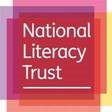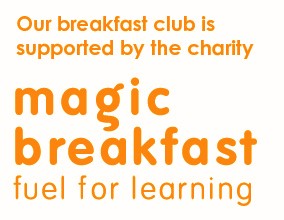Restorative Practice
Restorative Practice at Newport Primary School
At Newport Primary School we believe that a supportive and caring environment is essential for our students to thrive both academically and personally. That’s why we have embraced restorative practice as a key part of our approach to behaviour and relationships within our school community.
What is Restorative Practice?
Restorative practice focuses on building, maintaining, and repairing relationships. It is based on the belief that people are happier, more cooperative, and productive when people do things with them rather than to or for them. This means we prioritise open dialogue, mutual respect, and taking responsibility for our actions over punitive measures. When conflict or harm arises, we use restorative practices to encourage pupils to learn from their mistakes and understand the impact of their actions on others.
Why We Use Restorative Practice
We implement restorative practice because it aligns with our values of empathy, respect, and personal growth. The benefits include:
- Improved Relationships: Restorative practice strengthens bonds between pupils and staff, as well as between pupils and their peers, creating a stronger sense of community.
- Accountability and Responsibility: Pupils learn to take responsibility for their actions and understand the consequences of their actions on others.
- Conflict Resolution Skills: By encouraging open dialogue, pupils develop essential problem-solving and conflict resolution skills that serve them for life.
- Emotional and Social Development: Restorative conversations help pupils recognise and manage their emotions while building empathy and respect for others.
- Reduced Recurrence of Negative Behaviour: Instead of focusing on consequences, we focus on understanding the root cause of behaviour, which helps prevent future issues. Where consequences are used, these are logical and proportionate.
How Restorative Practice Works at Our School
We apply restorative practices in various ways throughout the school day. This includes:
- Circle Time: Regular circle meetings allow pupils to share their feelings, listen to others, and resolve any minor conflicts. These sessions encourage open communication and reflection.
- Restorative Conversations: When conflicts or inappropriate behaviour occur, we hold restorative conversations to address the issue. These are structured discussions where pupils involved in the incident express their perspectives, acknowledge the impact of their actions, and work together to find a solution.
- Repairing Harm: If harm is caused, we encourage pupils to take responsibility by repairing the relationships that have been damaged. This could involve apologising, discussing ways to make amends, or participating in a restorative agreement that outlines steps to improve behaviour.
Logical Consequences: A Fair and Just Approach
While restorative practice is central to our approach, we also recognise that sometimes pupils need clear consequences to help them learn from their mistakes. At Newport Primary School, we use logical consequences rather than punitive punishments.
Logical consequences are directly related to the behaviour and help pupils understand the connection between their actions and the outcomes. For example:
- If a pupil disrupts the class by not following instructions, they may need to take time to reflect and complete their work separately in a quiet space.
- If a pupil damages school property, they might be asked to help repair the damage or contribute to maintaining the area.
- If a pupil says something hurtful, they may be asked to have a restorative conversation with the person they’ve hurt and take part in actions that help rebuild trust.
The goal of logical consequences is not to punish but to guide pupils toward better decision-making and help them learn to make things right.
Building a Positive School Community
At Newport Primary School, we see restorative practice as part of our broader commitment to creating a positive, inclusive, and respectful school community. By focusing on empathy, accountability, and relationship-building, we help pupils develop the skills and values they need to succeed both in and out of school.
Through restorative practice and logical consequences, we empower pupils to make better choices, resolve conflicts peacefully, and grow into responsible, caring individuals.
We are proud of the positive impact that restorative practice has on our school culture, and we invite you to learn more about how we are working together to create a harmonious learning environment for all.

 01642 861911
01642 861911










